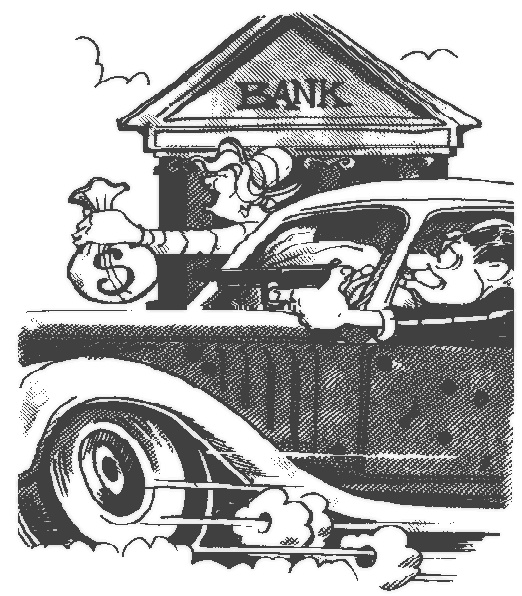China Considers New Bank Rescue 中国考虑出台措施援救银行
 Having ordered the nation’s top banks to make massive dubious loans to local governments during the financial crisis, Beijing is now considering letting the banks delay collecting those debts, in what looks like a lack of will to deal with the problem. On the one hand, I can understand why Beijing might not want to risk billions of dollars in loan defaults for its major banks, many of which may be unable to collect payments from cash-strapped local governments. But on the other hand, this problem really does exist, and it won’t help the banks or Beijing to delay dealing with the situation. Many may recall that Japan’s banks faced a similar problem in the 1990s, when they struggled under piles of huge bad loans created by the bursting of a US real estate bubble. The Japanese banks’ refusal to deal with the problem was one of the major factors behind the country’s “lost decade” in the 1990s, which saw the country experience little or no growth. Of course China’s situation isn’t completely the same, but there are many similarities. Local government debt at the end of last year stood at a whopping $1.7 trillion, of which about $700 million is coming due for repayment this year, according to media reports. Fearing that local governments lack the cash to repay so much debt and could default on many loans, the Chinese banking regulator is seriously considering a plan to let banks delay collection of the debt by as much as 4 years, and could announce a formal plan by the end of this month, according to media reports. (English article) Such a plan, if put into effect, would rescue the banks in the short term by allowing them to hide a looming non-performing loan problem. But from an investor perspective, this kind of a move is likely to weigh heavily on the banks’ stocks, as people will be wary of buying shares in lenders whose bad debt levels are so dependent on government policy and could suddenly balloon if and when Beijing finally decides it needs to solve this problem. The situation is clearly unsustainable over the long term, and I’ll use this occasion to once again repeat my previous assertion that Beijing should either privatize its major lenders and use them as policy tools, or let them behave like true commercial banks and make their own decisions. If it wants to create a group of truly commercial lenders, it needs to stop telling them how to do their business and then allowing them to hide their problems through accounting tricks.
Having ordered the nation’s top banks to make massive dubious loans to local governments during the financial crisis, Beijing is now considering letting the banks delay collecting those debts, in what looks like a lack of will to deal with the problem. On the one hand, I can understand why Beijing might not want to risk billions of dollars in loan defaults for its major banks, many of which may be unable to collect payments from cash-strapped local governments. But on the other hand, this problem really does exist, and it won’t help the banks or Beijing to delay dealing with the situation. Many may recall that Japan’s banks faced a similar problem in the 1990s, when they struggled under piles of huge bad loans created by the bursting of a US real estate bubble. The Japanese banks’ refusal to deal with the problem was one of the major factors behind the country’s “lost decade” in the 1990s, which saw the country experience little or no growth. Of course China’s situation isn’t completely the same, but there are many similarities. Local government debt at the end of last year stood at a whopping $1.7 trillion, of which about $700 million is coming due for repayment this year, according to media reports. Fearing that local governments lack the cash to repay so much debt and could default on many loans, the Chinese banking regulator is seriously considering a plan to let banks delay collection of the debt by as much as 4 years, and could announce a formal plan by the end of this month, according to media reports. (English article) Such a plan, if put into effect, would rescue the banks in the short term by allowing them to hide a looming non-performing loan problem. But from an investor perspective, this kind of a move is likely to weigh heavily on the banks’ stocks, as people will be wary of buying shares in lenders whose bad debt levels are so dependent on government policy and could suddenly balloon if and when Beijing finally decides it needs to solve this problem. The situation is clearly unsustainable over the long term, and I’ll use this occasion to once again repeat my previous assertion that Beijing should either privatize its major lenders and use them as policy tools, or let them behave like true commercial banks and make their own decisions. If it wants to create a group of truly commercial lenders, it needs to stop telling them how to do their business and then allowing them to hide their problems through accounting tricks.
Bottom line: Beijing’s latest rescue plan for its lenders facing a looming mountain of bad debt is bad medicine for bank stocks, which are likely to face years of stagnation.
Related postings 相关文章:
◙ Banks to Lend More, But to Whom? 银行获准增加放贷 但流向选择有限
◙ China Banks: More Trouble Signs
◙ Beijing’s Financial Shufflle: Bankers or Regulators? 中国金融高层“大换血”
